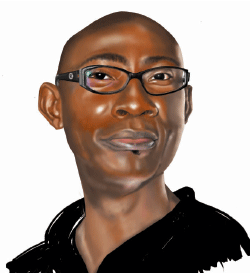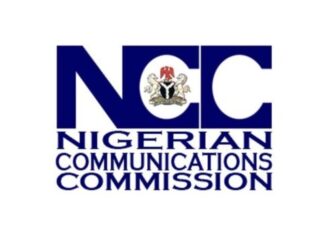In the Second Republic, Umaru Dikko’s name rang a bell across the nooks and crannies of Nigeria because of the influence he wielded on President Shehu Shagari’s administration.
Between 1979 and 1982 (before the administration was sacked on December 31, 1983 by the military junta led by Major General Muhammadu Buhari), Dikko’s name dominated the newspapers. Many Nigerians felt he was the de facto president. And I think he was because his aura dominated that of Vice President Alex Ekwueme.
Though I was in secondary school then, I can remember some of the controversial comments associated with Dikko and the impact on the political environment.
In the run up to the 1983 presidential election, when the late Moshood Abiola, (winner of the June 12, 1993 presidential poll) presented himself to challenge Shagari, who was gunning for a second term, Dikko told Abiola and the bewildered audience that the Presidency was not for sale and that there was no vacancy in Ribadu Road. Ribadu Road, Ikoyi, Lagos was then the seat of power.
The popularity Dikko enjoyed in life he seemed to have also enjoyed in death, given the reaction to his passage in London on Tuesday, July 1.
Before September 2012 when I met him for the first time, my impression of him as Shagari’s Transport Minister and Campaign Chairman was that of a man stupendously rich.
I also thought he was an arrogant and very corrupt politician whose surroundings oozed affluence. I discovered later that I was wrong.
But I had every reason to think that way, going by reports that Dikko embezzled millions of dollars or pounds running into billions of naira in his capacity as the Chairman of the Presidential Taskforce on Rice.
That was the sole reason the Buhari regime attempted to use three Israeli thugs aided by Nigerians to crate Dikko as a diplomatic baggage back to Nigeria from Stansted Airport, London on July 5, 1984 to answer charges of alleged corrupt enrichment. Apart from the fact that he was perceived as one of the most powerful ministers under Shagari.
Godson Okoye, a younger political associate of Dikko and the Secretary of the United Democratic Party (UDP) – which was formed later – drove me to Dikko’s residence on Gnassingbe Eyadema Street, Asokoro, Abuja to interview Dikko after many failed attempts due to his failing health.
Dikko was praying when we arrived his home, which was manned by one security guard. We were ushered into a visitor’s waiting room by an aide. Prayer over, he came up to welcome us and wasted no time to inform us that he was not feeling very fine. He said he had cold and I noticed he was also coughing.
When Okoye told him I was the reporter who had been calling his number to interview him he was excited and apologised that he had not found time to deal with the request due to no fault of his.
He still was not physically strong to talk to me that day, but as our informal discussion and jokes progressed he reasoned with us that the time already spent chatting away could have formed part of the interview.
Dikko eventually strained himself to speak to me. I think that was his last detailed interview with a newspaper till he died last week at 78.
The picture of his house – interior and exterior – which I saw in Abuja did not depict that of a politician who had money, not to talk of living in affluence. It looked like a retired principal was the one who lived there.
Unlike what one is likely to see in the home of latter day politicians, I saw only one car in the compound. Dikko said his Asokoro residence (a one story simple duplex) is the only house he owns in Abuja. He challenged anybody who had information about where he had money or property in and outside the country to disclose it to the authorities.
Something is still strange about the politicians of today. Not only are they all into primitive acquisition of wealth, grabbing both what they need and what they do not, they are also not as sincere as those before them about fighting corruption.
If you visit the home of a typical politician of today who commands the kind of influence and respect Dikko had, you would think it is a car shop. God help you if you are not scared stiff by the security in the compound, among other characters that tell you that Dikko was an angel dressed in the apparel of a devil by the real devilish politicians.
Contrary to popular feeling, the Dikko I met was a very shy man, slow talker, gentleman, intelligent, conservative, friendly, and a consummate politician who detested corruption and would not want to touch it with a long spoon. After our first meeting, I called him regularly on his cell phone and when he was in a position to answer, he spoke with me.
The last time I wanted to speak with him was last year when the Peoples Democratic Party (PDP) appointed him Chairman of its seven-man national disciplinary committee.
I was concerned that Dikko had not resigned from the UDP, and wanted to hear from him whether he had the consent of the PDP, then chaired by Bamanga Tukur, to take the offer. Someone picked the call and said Dikko was indisposed.
I will miss Dikko’s jokes, moreso when he told me he took degrees in Mathematics and Physics before going to study law in exile.












